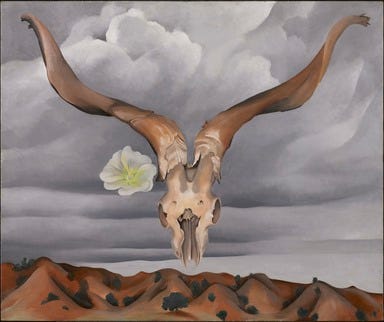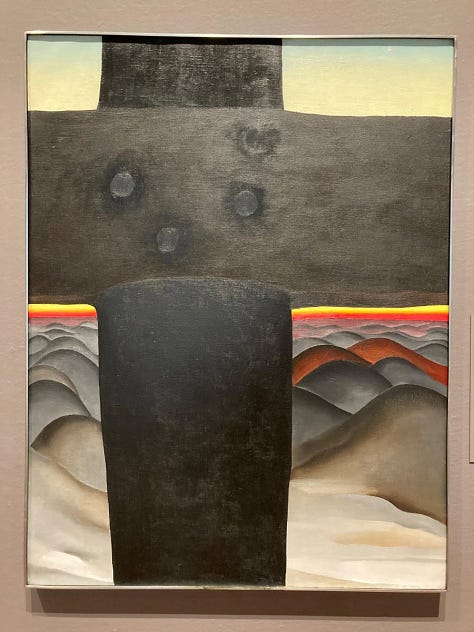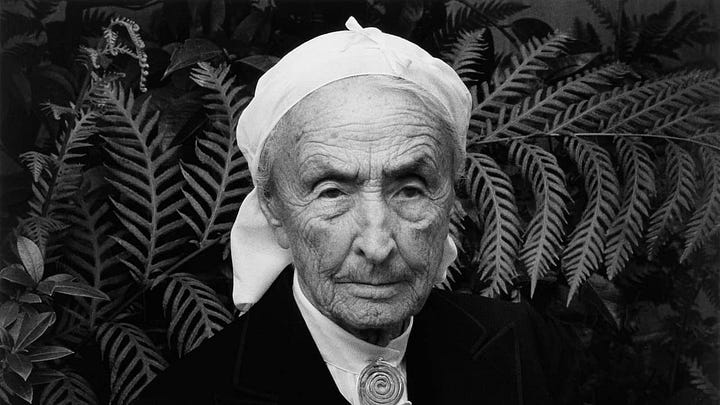At midmorning the world is all dark. A steady, sheeting rain pools in the hollows and courses down the gutters. I’ve lamps on where I read and the laptop hums blue.
“What a perfect reading day!” I think, temperamentally suited to inclemency. And I think about it for a moment: the library stack on Calamity Jane, some earthy stuff on bogs, essays by Teju Cole on the complexity of cosmopolitanism. Distant, ominous thunder shakes the western edges and I sigh: it isn’t about me, and I have work to do. I finish the dishes before staring into the screen.
The blue of the screen feels dead. It doesn’t rumble or pour. It has no purple vastness, no blooming coil. It is godawful stubborn. It starks. A sizzle of lightening snags at my eyes from the side. The old familiar restlessness: like a kid looking out the schoolroom window. The petulant urge to - not necessary be somewhere else - but to be where I am without having to do what I’m supposed to do.
For the longest time, I thought I liked jungles. The places I’d been happiest were swampy and hot. I’ve come to realize this is true, but has less to do with heat than it has to do with moisture and barometric pressure. In Alaska, I learned there is such a thing as a ‘temperate rainforest’. I felt it kin like in my blood: moss, ferns, evergreen trees and the constant presence of water. But what I knew as little, knee high things grew there to the size of a horse or a house. My blood swelled. I liked it.
I’ve found this kinning blood thing in all sorts of soggy places: the cloud forests of Ecuador and the steamy port city of New Orleans. Were it not for the race in America thing, G and I would probably live in the murky south.
Of course it’s true: racism is real in Minnesota and art things are true in the high desert. Differences are slight and ultimately personal.
Slight and personal as they may be, desert places scorch me to something approaching madness. I appreciate the strangeness of dry landscapes. I understand how the hard aesthetic verges on spiritual. I know why Georgia O’Keefe loved it. I just can’t live there, personally.
“Living out here has just meant happiness,” she wrote to her lover friend, photographer Albert Steiglitz. “Sometimes I think I'm half-mad with love for this place.” I feel a quickening sympathy, a bolt of gladness at the thought: how is love not a maddening, and is that not a glory, and isn’t that why anybody goes anywhere at all?
But her happiness was hard: “The bones seem to cut sharply to the center of something that is keenly alive on the desert even though it is vast and empty and untouchable-- and knows no kindness with all its beauty.”
I believe all of that.
But I personally require kindness.







When G and I drove off into the sunset last week (it was dawn, but west so give it to me) I knew we were headed into deserts and plains. I didn’t know what driving 2000 miles in the course of a few days would be. I hadn’t understood the extremes we’d go through. It didn’t take long to move from the blue green of Minnesota to the yellow green of South Dakota. Mere hours after that, we hiked in the badlands. We slept that night in the Black hills. To juxtapose such extremes of landscape in lived time and traveled space jumbled the mind.
G quoted some scientist to me: if there were a celestial being who could hold the planet in his fingers like a marble (this is about magnitude rather than the feasibility of aliens or god), than the entirety of the earth’s geography would feel smooth as glass. The earth’s crust is only a few miles difference, up and down. This whole world, from the bottom of the ocean to the scraping of the mountains: a few miles up and down. Less than the grooves of a fingerprint.
From our vantage point, the world is vast oceans and daunting mountains and devastating prairies and gulleys so cruel they leave their marks on you. It’s sacred spaces and precious landscapes and beloved cities, people, rooms, or trees. It is so variable you prefer: I want this, you say; I hate that.
What I took from the idea of a godhand holding the planet between forefinger and thumb: not smallness.
Keep reading with a 7-day free trial
Subscribe to Gristle and Bone to keep reading this post and get 7 days of free access to the full post archives.



